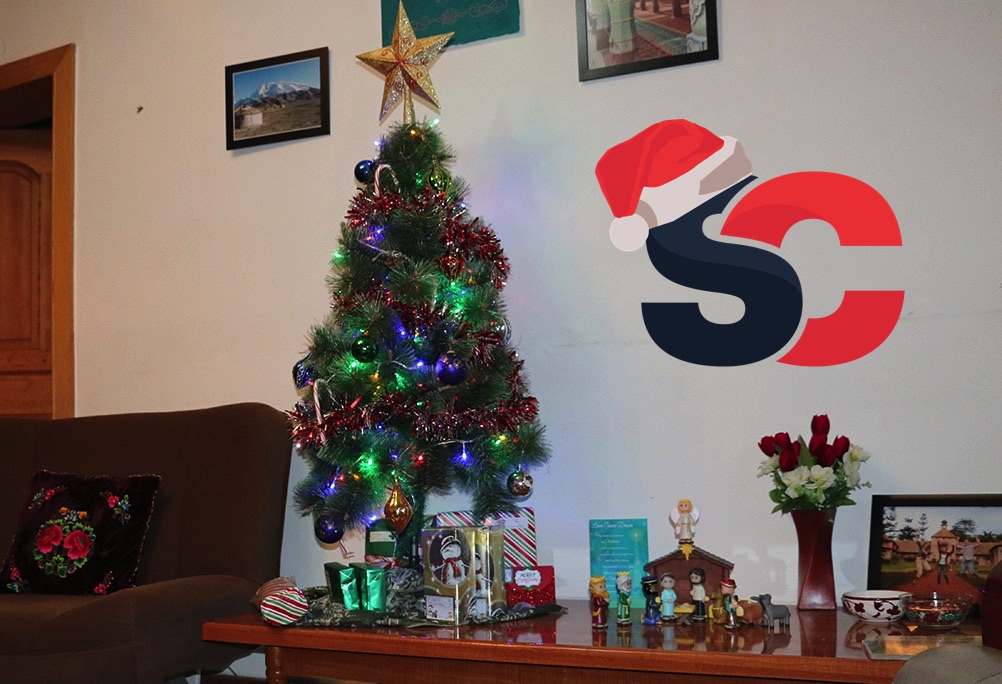A China Christmas Story: Christmas in Xinjiang

From the window of my fourth-floor Xinjiang apartment, I can hear the sound of Jingle Bells echoing between the concrete buildings that line my neighborhood, blasting from the speakers of the local kindergarten.
If I were back home in Dallas, this might be a sweet reminder of the current holiday season. But here in Urumqi, that kindergarten plays this Christmas carol all year-round. Even my washing machine plays the first 11 notes of Jingle Bells every time the spin cycle ends.
Christmas in China’s remote, western region of Xinjiang is unlike Christmas anywhere else I’ve been in the world. While most of China seems to have adopted various symbols and traditions of this major holiday, Xinjiang is different. It’s a place where the holiday can easily pass by without notice.
Perhaps it’s because half the population here is Uyghur, a Muslim minority with whom the story of Christmas doesn’t resonate. Or maybe it’s because there are so few Westerners. It’s safe to say there are more Westerners in one block of Beijing’s popular Sanlitun nightlife district than there are in the entire area of Xinjiang, a region that is the size of California, Colorado, France, and Germany…combined.
And yet, we try. My wife and I have set up a fake tree with lights in the living room of our apartment, with stockings on the wall by the door. We put presents under the tree for our boys and set up a nativity scene on the table.
But these decorations are just that: decorative. In my family, Christmas represents something deeper: It is a traditional celebration of community.
That’s why, on the second-floor ballroom of a hotel in the capital of Urumqi, approximately 120 of us expats have convened for a Christmas celebration. It’s an annual tradition. Over the past couple of years, a dramatic increase in surveillance and control in the name of security has resulted in cameras, checkpoints, ID scanning machines, and unwritten rules about groups numbering 10 or more. This is the only time of year when we can congregate in a party this big all in one place.
The hotel has done its best to cater to us, but the food that’s served bears little resemblance to dishes we are used to in our home countries. Importing foods into Xinjiang is costly and, even now, quite difficult.
Instead of fruitcake, pumpkin pie, stuffing, or yams, there is lamb meat, noodles, rice, and fresh fruit. Our options to drink include coffee, Coke, and Sprite. Sadly, eggnog and apple cider aren’t on the menu.
This limited selection of familiar cuisine is part of everyday life in Xinjiang, though, so nobody is complaining or even making mention of the buffet. We’re not here for the food.
We’ve all gathered to remind ourselves that this is an important holiday for our families, even if the world outside this tiny hotel ballroom in this remote part of Central Asia shows no sign of Christmas spirit. I want my sons to recognize this part of our traditions even if they spend most of their lives in a foreign culture.
Before sitting down to eat, the ballroom emcee decides for the sake of the kids to get us into the holiday spirit with a singalong. We all stand as a pianist begins playing that all-too familiar tune…
“Jingle bells, jingle bells, jingle all the way…”
A tapping on my leg draws my attention to my son, who motions for me to bend down so he can say something to me. “Listen, dad,” he says. “That’s the song from my kindergarten!”

We’re running a series of Christmas in China stories this week. Click here for more.





